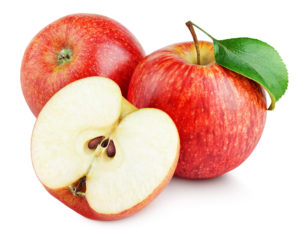
Is a sweet, innocent fruit the reason for humanity’s troubles? Some Christian traditions place the blame on Eve tempting Adam with a shiny red apple, but her crimson offering takes on a wide range of other meanings in the context of several pre-Christian religions. From immortality and rebirth to love, beauty and even strife, these glorious edibles have captured the imaginations of bards, supplicants, theologians and now modern-day pagan practitioners.
Revered Objects in Many Pagan Traditions
Around the world, apples have been regarded as sacred objects in many religions. Witchipedia mentions that they’ve been associated with several goddesses:
- Aphrodite, a Greek deity of love and desire
- Freya, the Norse goddess of fertility, love, war and death
- Pomona, the Roman wood nymph and deity of orchard fruit
- Eris, a Greek goddess of strife and discord
Unsurprisingly, this fruit appears in many pre-Christian religious myths around Europe and the Middle East. Homer’s “Iliad” claims that Eris’s actions led to the Trojan War when she tossed a golden apple inscribed “for the most beautiful one” into a party and Athena, Aphrodite and Hera all claimed it at once. Other Greek writings describe the Garden of the Hesperides, an enchanted grove producing Hera’s golden apples that grant their eaters immortality. The Norse spring goddess Idun also tended a grove of similarly magical apples, and applewood wands were used for love rituals in ancient Scandinavia.
Apples also play an important role in some Neopagan traditions. Older Celtic legends tell of an apple tree with a silver branch bearing the same miraculous fruit, located in a supernatural paradise known as Tír na nÓg. The Order of Bards, Ovates and Druids discusses a few divination methods using apples that can be practiced during Samhain, and some see parallels between the shape of the seeds in the core and the pentagram, a revered and powerful symbol for many Neopagan practitioners.
An Apple by Any Other Name?
One compelling twist to some juicy pre-Christian tales about apples is that the original storytellers may not have meant the seed-bearing wonders produced by Malus pumila. In an Online Etymology Dictionary entry, editor Douglas Harper explains that “apple” is derived from the Old English “æppel,” which itself referred generically to any sort of fruit. Tomatoes, for example, once earned the nickname “love apples” when Spanish colonizers brought them from the Aztec empire to Europe during the 16th century. Such conventions also exist in the French language where “pomme de terre,” its word for potato, translates literally to “apple of the earth.”
What’s even more shocking is that earlier Greek texts may have been talking about oranges, not apples. Thanks to the Garden of the Hesperides, ancient Greeks broadly gifted the moniker “hesperidoids” to all citrus fruits. Some writers suggest that the Garden of Eden story in later retellings may have been associated with the Hesperides myths, so it’s possible that a “hesperidoid” turned into an “æppel” via translation and eventually took the form of the familiar red edible. Furthermore, a 2017 NPR piece proposes that Saint Jerome may have humorously snuck in the Latin word “malus” for the original Hebrew word “peri” when producing the book of Genesis for the Latin Vulgate edition of the Bible. Notably, “malus” can mean either “evil” or “apple” in English.
A Delicious History That Spans Centuries
From Halloween traditions to medieval religious art, the humble apple has made its way into popular culture and perhaps the collective human unconscious. However, some of our ancestors may have spoken about oranges as a sacred fruit. Regardless of which sweet treat appears in these myths and legends, these stories stand as testaments of the human tendency to assign deeper meaning to mundane, everyday objects.

